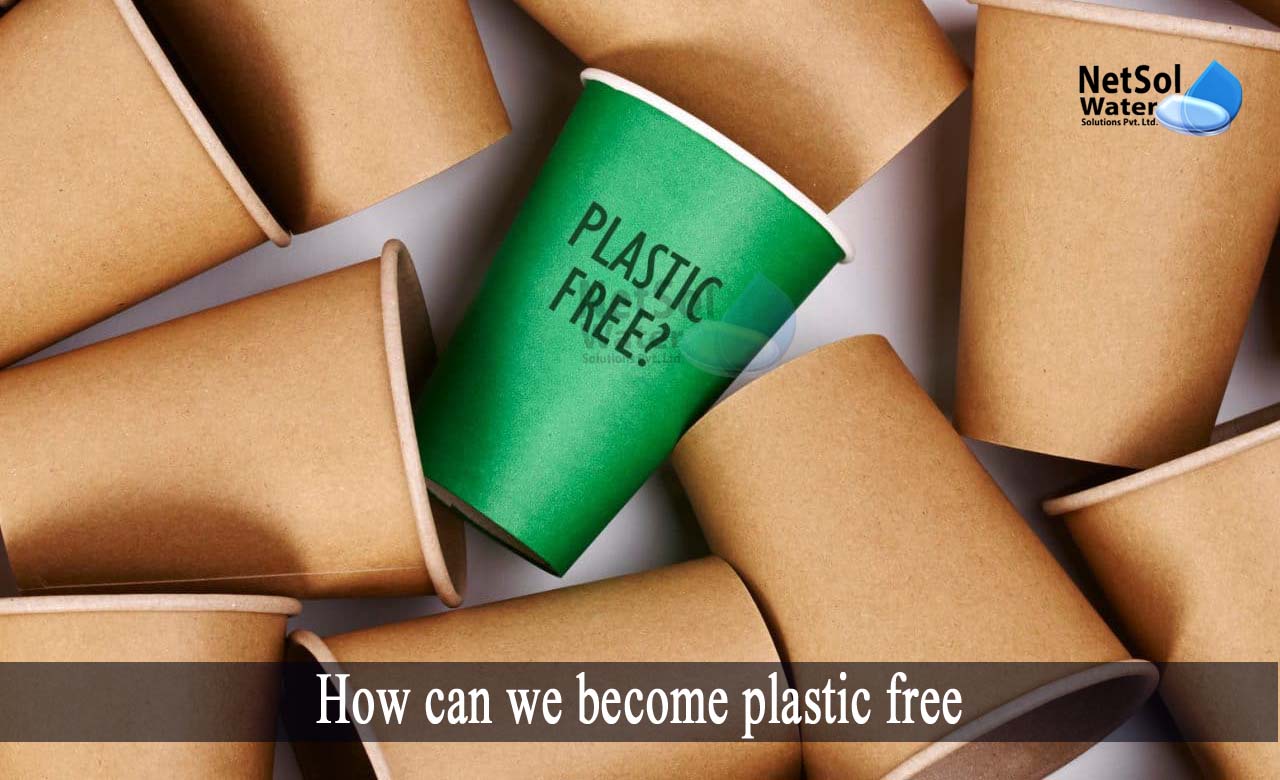What is plastic neutrality?
Plastic neutrality is accomplished when a person or organization's plastic footprint is assessed, balanced, and reduced by removing and recovering waste plastic, from the environment.
This should be accomplished by making bold promises and advancements in decreasing the usage of virgin plastic, hence, as small a plastic footprint as feasible. By supporting plastic-recovery initiatives, any leftover plastic use can be balanced.
How can we become plastic free?
To become plastic neutral or plastic free, people must follow these three steps:
1: Count the plastic you use.
2: Limit your use of plastics and pledge to cut back even further.
3: By supporting initiatives that collect as much excess plastic as is being used, you may reduce your overall plastic footprint.
4: There are several organisations that provide "Plastic Neutral" certifications. In regions of the world where plastic waste is most at risk of damaging the environment, or leaking into oceans, many of the same organisations also run plastic collection and recovery activities in addition to doing this.
Let's have a look at the three essential components for a brand seeking accreditation as plastic-neutral:
· Measure
Establishing an accurate plastic footprint is the first step. Leading certification bodies will have an intuitive, in-house evaluation tool to determine plastic footprints. To help brands through this process more easily, they might also offer professional support.
The measurement of plastic used in goods and packaging, as well as any other plastics used after the manufacturing process, is typically included in the footprint estimate. Plastic from the business's own activities and workplace-related plastic, must also be included for a brand to be considered plastic neutral.
· Reduce
After completing the plastic footprint assessment, the brand is encouraged to, if they haven't previously, commit to reducing plastic waste through tactics including plastic reduction, alternative material sourcing, and increasing circularity.
Companies can only be certified as plastic neutral by environmental organisations, if they are dedicated to setting, monitoring, and fulfilling pledges to reduce their use of plastic.
· Balance
To offset their plastic impact, the company funds the removal and recovery of "extra" plastic waste from the environment. Projects for the collection and recovery of plastic waste are typically situated, in plastic waste "hotspots" in nations like India.
Plastic neutrality is a component of the remedy!
It seems obvious that the key to establishing a world free of plastic pollution is to reduce plastic production and use. In order to address the challenge holistically, plastic neutrality—like carbon neutrality—must be combined with reduction promises.
We also need to continue subsidising plastic alternatives, build out the infrastructure for waste collection, enhance recycling procedures, and make sure that disposal facilities don't let plastic leak out.
Conclusion
Plastic neutrality has demonstrated that it can be much more than a temporary fix. When implemented properly, plastic neutrality can provide funding for essential projects and initiatives, to clean up plastic waste and lessen its impact on the environment. It may promote a circular economy and provide thousands of people with respectable employment, and income opportunities of trash personnel’s.
Therefore, plastic neutrality offers a chance to contribute to these solutions — and, ultimately, the reduction of plastic waste in nature — while, also giving brands that care about their environmental impact an instant means of taking accountability, for the plastic they are using.
How can we assist?
In the current scenario, an effective plastic waste management system is required due to strict compliance standards, increasing enforcement, and rising community pressure. Netsol Water, being a responsible firm, pledge to maintain our facilities in greater conformity with current regulations, and continually look for ways to reduce their negative environmental effects.
You need a company with a deep understanding of current and upcoming environmental concerns, including plastic wastes, as well as someone with extensive industrial experience and broad expertize in solid waste management. As your ally, we can develop a comprehensive solution to help you fulfill your solid waste management measures. For additional information, you can contact our environmental cleaning experts at +91 9650608473 or get in touch via email at enquiry@netsolwater.com.



